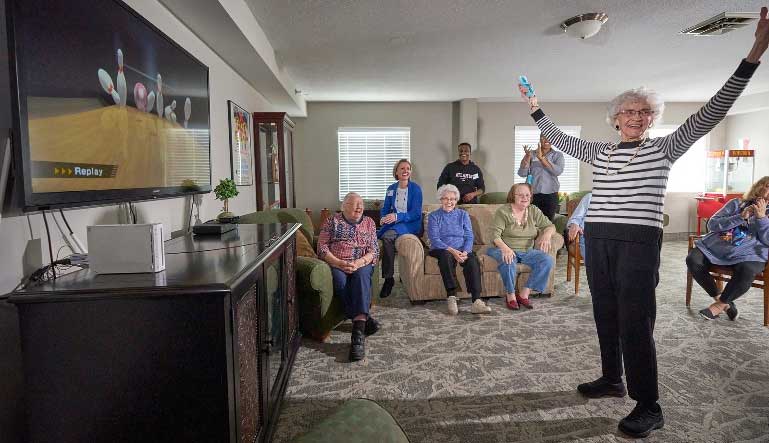Retirement is your reward after a lifetime of hard work and planning. It’s your time to have fun and pursue your passions both familiar and new, like writing that novel or spending an entire day as a couch potato watching movies. No matter what it is, you’ve earned it.
Some older adults always knew downsizing would be part of their retirement plan. For others, it took retiring to realize they would like a change of pace. Whether moving to a retirement community is a new idea or it’s always been part of your plans, it can be tricky to know what time is the right time to make such a major life decision. Let’s take a look at retirement living and how to decide when might be the right time to consider moving to a retirement community.
What is a retirement community?
The term retirement community is a broad one, but generally refers to senior living neighborhoods or housing complexes designed for older adults.
Retirement communities give older adults the option to spend their time doing what they love without the stress of the day-to-day chores, home maintenance or driving. There’s a wide range of communities to choose from, from 55+ communities and independent living to assisted living or memory care. No matter what kind of lifestyle you want, there’s a place just for you.
Signs it’s time to consider moving to a retirement community
Only you will know when it’s the right time to move to a retirement community, but there are some tell-tale signs to know when you might want to make the move.
You want to enjoy stress-free living
You’ve spent your life working, keeping your home clean and cooking meals. Now it’s time to reward yourself with the freedom to do what you love and have a retirement community handle the rest. Retirement communities offer in-house dining with customizable menus, housekeeping options and more to make sure nothing gets in the way of what makes you happy. Even planning what to do with your free time is easier with scheduled events, classes and entertainment.
Your friends and family have moved or passed away
Social circles can shrink for older adults due to reasons outside their control like family moving to a new area or friends passing away. If you find yourself wanting to move closer to family or forge new bonds with friends, it might be time to move to a retirement community. Retirement communities bring older adults together to enjoy each other’s company with a wide range of amenities to let you live life to the fullest.
Transportation has become a problem
If driving at night has become difficult or the thought of getting in the car to go to the grocery store is stressful, a retirement community might be right for you. Retirement communities are strategically located close to shops, services and other amenities for convenience. Plus, there are all kinds of transportation options available at retirement communities like buses, excursion vans and scheduled trips that bring you where you want to go. Moving to a retirement community also doesn’t mean you have to give up your car—plenty of retirement communities have parking lots or parking garages nearby.
You want to build strength after an injury
Building your strength back up after an injury, surgery or illness can be tough, but retirement communities can make it easier. Most retirement communities have a rehab and fitness partner who can help you in recovery. Five Star Senior Living communities partner with Ageility, a personalized rehab, fitness and wellness provider for older adults. You can try out a retirement community with a short-term stay and you may find you’d like to stay even longer.
Access to personal or nursing care is important Many retirement communities offer close and easy access to the care you need. Maybe you need some extra support throughout the day through personal care or you need daily nursing care. No matter your needs, you can find a community that will support you.
Find a retirement community near you
Remember that the right time to move to a retirement community is when you’re ready and moving to a community has never been more exciting, due to the abundance of options and amenities that are available. When you decide it’s time to consider moving to a retirement community, Five Star can help you find the right retirement community to enjoy this new stage of life exactly the way you want.
Contact Us Today
"*" indicates required fields

